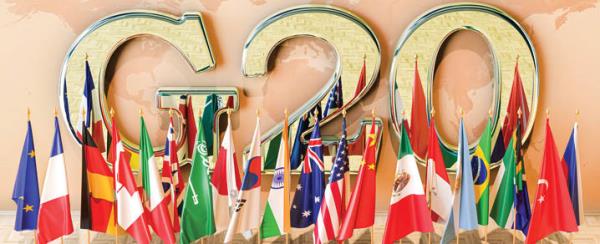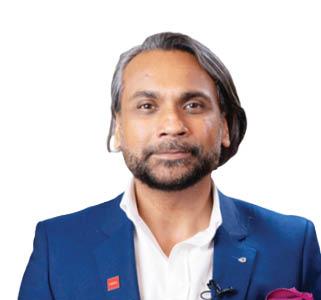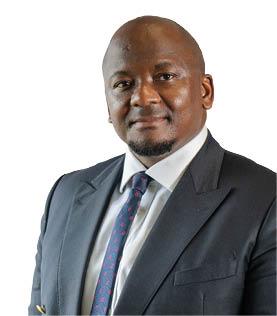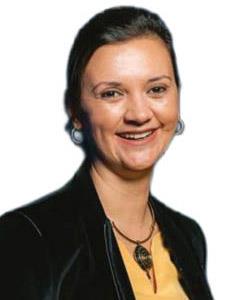06 November 2025

As Africa hosts the G20 for the first time, the continent faces a choice: build a unified digital future, or risk splintering into incompatible networks shaped by global rivalries. Spectrum harmonisation, open standards, and digital trust could determine whether Africa is a co-author of the 6G era — or just a late adopter.
When Africa hosts the G20 for the first time this year, the world’s attention will rightly focus on infrastructure and finance. But industry leaders warn that another, quieter battle could determine whether Africa’s digital future is inclusive or fragmented: the struggle over spectrum, standards, and trust.
As geopolitical rivalries spill into technology, countries are dividing into competing blocs around 5G, cloud, AI, and even undersea cables. For Africa, which is still in the early stages of rolling out 4G, the risk is acute: adopting fragmented systems could leave the continent with islands of connectivity that never add up to a unified digital economy.

Danial Mausoof,
Nokia
“Techno-nationalism risks fragmenting Africa’s already uneven digital landscape,” warns Danial Mausoof, Vice President of Technology, Solutions and Services at Nokia in MEA. “At the G20, African nations should advocate for technology-neutral spectrum policies, shared spectrum frameworks for rural coverage, and harmonised data regulations. Africa must unite as a single digital voice.”
The hidden cost of fragmentation
At first glance, Africa’s telecom market is vibrant. Mobile penetration is approaching 50%, smartphone adoption is rising, and operators are experimenting with 5G in capitals from Lagos to Johannesburg. But scratch deeper, and the risks of fragmentation are clear.
Each African country sets its own spectrum policies, often in isolation. Licensing terms vary widely, auctions are opaque, and cross-border coordination is rare. The result: operators face higher costs, devices are less compatible, and innovation slows.

Andy Dikobo, NTT
“As techno-nationalism intensifies, African leaders must take a proactive stance,” says Andy Dikobo, Public Sector Executive at NTT DATA in the Middle East and Africa. “Transparent spectrum auctions, regional harmonisation of frequency bands, and interoperable data governance models are essential to ensure seamless digital connectivity across borders.”
The stakes go beyond efficiency. If Africa’s networks split into incompatible standards, the continent risks becoming a dumping ground for obsolete technology, or worse, locked into one bloc’s ecosystem. That would not only drive up costs but also reduce Africa’s bargaining power in the global digital economy.

Majda Lahlou Kassi, Ericsson
“Techno-nationalism risks fragmenting the global digital ecosystem – and Africa has a strategic interest in keeping it open, fair and interoperable,” asserts Majda Lahlou Kassi, Vice President and Head of Ericsson West and Southern Africa. “At the G20, African leaders can speak with a unified voice to promote policies that prioritise technology neutrality, harmonised spectrum allocation and secure cross-border data flows. It is also critical to protect the principles of openness – ensuring no region is left isolated by fragmented standards or restricted vendor choices. Ericsson believes in one global standard built on 3GPP specifications, so that networks across Africa remain compatible, scalable and affordable. That is how we ensure seamless connectivity, regional integration and global competitiveness – not only for consumers but also for the businesses, startups and developers that power digital economies.”
Regional cooperation as a competitive advantage
Africa’s greatest strength is its scale. With 54 nations and a population of 1.5 billion, a coordinated digital market could rival those of India, the EU, or Southeast Asia. But fragmentation weakens that potential.
“Leaders should push for Pan-African Wireless Interoperability Frameworks aligned with ITU, 3GPP and AI-RAN principles,” argues Mausoof. “Platforms like the Smart Africa Alliance and the AU’s Digital Transformation Strategy can standardise RAN technologies, AI policy, and data governance.”
Some progress is visible. The African Telecommunications Union (ATU) has begun harmonising spectrum across regions. The Smart Africa Alliance, with more than 30 member states, is piloting cross-border digital corridors. The African Continental Free Trade Area (AfCFTA) is laying the groundwork for a single digital market.
As the G20 brings together the world’s major economies, multilateral development banks, and technology partners, it offers a powerful platform for Africa to accelerate its digital transformation. A unified regional approach to spectrum policy could fast-track equitable 4G and 5G expansion, while G20 engagement opens access to financing and technical expertise. Aligning regional standards and regulatory frameworks would strengthen interoperability, support cross-border investment, and enable seamless roaming. Coordinated digital public infrastructure and API standards could help establish a single, attractive digital market that unlocks scale and efficiency across the continent.
Shaping the 6G era
While Africa is still scaling 4G and testing 5G, industry leaders are already looking ahead to 6G. The first technical specifications are expected by 2028, with commercial rollouts in the early 2030s. Decisions made now — in standards bodies and R&D alliances — will determine whether Africa’s needs are embedded in the next generation.
The G20’s global digital agenda will play a key role in shaping these developments. The policies and frameworks debated there will influence how next-generation wireless technologies evolve, where investment flows, and which regions lead innovation. For Africa, active participation means ensuring that the continent’s priorities — inclusion, affordability, and sustainability — are built into 6G’s foundations.
Now, with its inclusion in the G20, Africa has the opportunity to shape and steer 6G from inception, rather than retrofitting adoption post-design.
“Much of the 6G advancement will be driven through the Middle East, where Africa can take advantage of these leaders,” notes Mausoof, who adds that we’ll see integration and augmentation of non-terrestrial networks (NTN) for remote areas, as well as AI-driven spectrum use, energy optimisation, and service orchestration. “Africa must co-create these standards via stronger representation in 3GPP and AI-RAN Alliance working groups, ensuring African use cases (e.g. remote education, climate monitoring, precision agriculture) are embedded into the fabric of 6G policy and design.”
African policymakers and industry stakeholders are increasingly recognising that early involvement is essential. By embedding region-specific needs — from rural coverage and affordability to energy-efficient infrastructure — into global technical specifications, the continent can avoid being marginalised by competing technology blocs. Aligning national innovation agendas and regulatory priorities with the G20’s digital frameworks will help Africa access multilateral financing, technology transfer, and R&D partnerships that accelerate local 6G pilots and commercial readiness. This alignment is key to overcoming the R&D investment gaps that have traditionally limited Africa’s ability to shape or quickly adopt new wireless standards.
When African nations implement G20-endorsed best practices — such as transparent, flexible spectrum management and open-access regulations — they create market conditions that drive competition, innovation, and inclusive connectivity at scale. By integrating universal design principles and digital inclusion into policy benchmarks, the continent can ensure that future wireless technologies close, rather than widen, the digital divide. Such strategies will not only expand access but also nurture local innovation, building ecosystems that allow 6G and beyond to serve both urban and rural communities.
“As the world begins shaping the future of 6G, Africa must have a seat at the table,” asserts Kassi. “The G20 offers a unique opportunity for African leaders to influence early decisions around R&D funding, global standards and regulatory frameworks that will define next-generation wireless technologies. These early choices will determine whether 6G is built to be inclusive, scalable and accessible – or whether it reinforces existing divides. We feel global alignment on 6G architecture and open interfaces is critical. Early standardisation ensures that all markets – including those in Africa – can benefit from economies of scale and avoid the cost of fragmented solutions. Now is the time to ensure Africa’s needs and use cases are reflected in the conversation.”
The G20 as Africa’s megaphone
The common theme across spectrum, standards, and trust is openness. Without it, costs rise, innovation slows, and Africa’s market fractures. With it, the continent can scale, attract investment, and compete globally.
“Building a unified digital Africa is entirely within reach – but it requires intention, coordination and the right partnerships. The G20 gives African leaders a platform to advance this vision, starting with one key principle: interoperability,” notes Kassi. “When countries adopt shared wireless standards, everyone benefits. Networks become easier to scale, services work seamlessly across borders, and costs come down for both operators and end users. What African leaders can do at the G20 is elevate those efforts. They can make the case for greater international support – technical, financial and political – for cross-border collaboration on spectrum, licensing and network design. They can push for the inclusion of open standards and technology-neutral policies in global frameworks. Africa can lead by showing how cooperation makes networks stronger, not just within its borders, but across the global digital economy.”
“Africa’s opportunity is vast — but to unlock it, we must be co-authors of the wireless future, not just its consumers. Nokia believes in an inclusive, sustainable digital future where Africa’s voice shapes the architecture, policies, and partnerships of tomorrow’s networks,” says Mausoof. “Through smart regulation, targeted investment, local empowerment, and continental unity, Africa can lead — not follow — the global digital agenda. G20 2025 is our moment.”
Ultimately, the G20 is not where networks are built. Towers will rise from Dakar to Dar es Salaam through the work of operators, regulators, and communities. But the G20 is where global norms are set — where financing is mobilised, standards are negotiated, and rules of the digital game are agreed. For the first time, Africa will chair that table. And industry leaders are clear: the stakes are too high to waste the opportunity.







